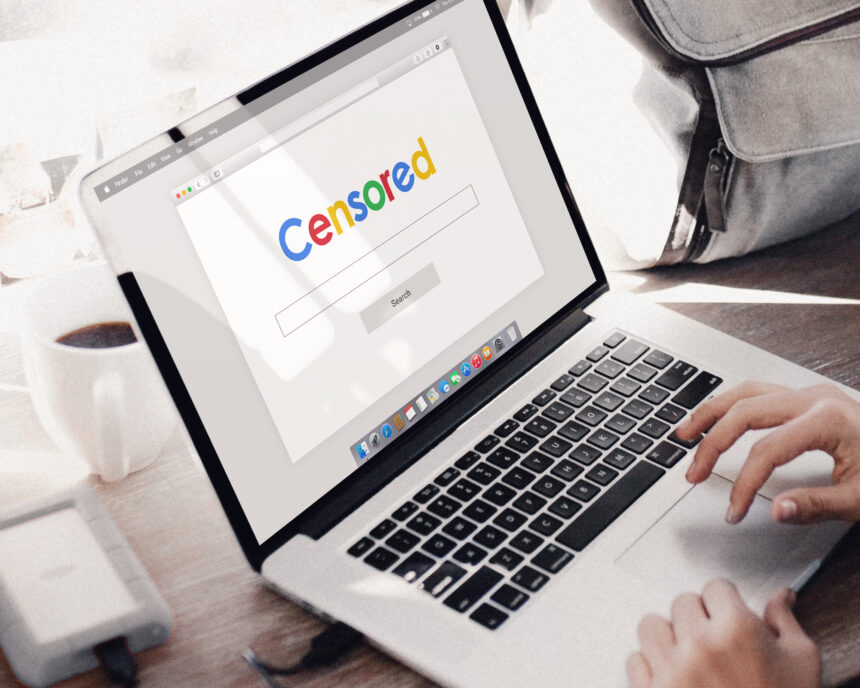SAN FRANCISCO – Google has come under increased scrutiny as accusations grow that it allegedly suppresses religious and conservative viewpoints on its platforms. Critics point to search algorithms, moderation choices, and ad rules as possible tools for limiting certain content.
This has set off intense discussions about free speech, bias in algorithms, and the power large tech companies hold over what people see and hear online.
One well-known example involves Catholic speaker Matt Fradd, whose experience has become a key talking point for those who claim Google targets religious and conservative perspectives more than others.
Concerns have also surfaced about Google’s ad rules, with some saying faith-based groups face unfair limits. In the Google Search Central Community, users have raised doubts about how content is indexed and prioritized. While Google says its policies promote fairness and protect users, critics insist these rules sometimes amount to selective censorship. This continues to raise questions about the company’s role in shaping public discussion.
The Matt Fradd Event: Highlighting Concerns
In 2019, Matt Fradd, a Catholic author and anti-pornography advocate, became a central figure in the debate about Google’s handling of religious speakers. Fradd was invited by Google employees to give a talk about the non-religious impact of pornography at Google’s San Francisco offices.
The event was set up and paid for by staff, not the company itself, and Fradd even declined a fee. Still, Google cancelled the talk at the last minute. Fradd called the move an outright ban.
According to Fradd, Google pointed to a 2018 Twitter thread where he shared Catholic teachings on homosexuality as the reason for cancellation, even though his planned talk was not religious.
Fradd felt the decision was less about the content of his presentation and more about his public support for Catholic beliefs. In a video message, he said he believed Google had looked up his views on sensitive topics to find a reason to ban him.
This incident triggered strong criticism, with many accusing Google of censoring religious and conservative speakers while allowing others, like Planned Parenthood representatives, to participate in staff-led events. Fradd and his supporters argued this showed a double standard. The story sparked debate on sites like Reddit, where some users asked whether Catholics could publicly share their faith if Google set this precedent.
Religious Groups and Google Advertising Rules
Beyond individual cases, Google’s ad rules have faced backlash for their effect on faith-based organizations. In 2022, new reports highlighted that Google had tightened rules, stopping advertisers from targeting users by religious beliefs or ties. This shift has hit faith-based universities, schools, and charities, especially those that openly express their religious identity.
The University of Dallas, a Catholic school, saw Google repeatedly reject ads for its graduate programmes, even though there was no religious content in the ads. Clare Venegas, the university’s head of marketing, described the situation as frustrating, pointing out that Google blocked them purely because of the school’s religious affiliation.
Google’s guidelines ban targeting users by religious identity and collecting related data, aiming to prevent harmful targeting. Critics say the policy is applied too broadly, penalizing organizations just for their religious connections. This has caused problems for groups using Google’s ad services, including Google Ad Manager and Display & Video 360.
The university’s agency, VMR Communications, appealed the ad blocks in 2023 and 2024, arguing their ads sought to reach students interested in a Catholic university, not target religion directly. Google stood by its decision, leaving such institutions with fewer ways to reach potential students.
These policies have a wider impact. Critics say Google’s huge share of online advertising—over a quarter of global digital ad revenue—means it can significantly affect which voices reach the public.
Venegas noted that “conservative or religious groups face real challenges here—the evidence seems to show that we’re disproportionately blocked from advertising.” Groups like Life Issues Institute have also reported sharp drops in online views, which they believe are caused by Google’s algorithms downgrading their content.
Search Algorithms and Content Visibility
Concerns about how Google handles religious and conservative material also extend to its search engines and indexing methods. People commenting in the Google Search Central Community say that Google sometimes indexes content for only a short period, checks for engagement, and then quietly removes it if it does not perform well. Although this is meant to boost search quality, some believe it unfairly impacts conservative and religious sites.
The Daily Declaration, an Australian Christian news outlet, shared in 2021 that an article called “Seven Reasons the World Health Organisation Cannot Be Trusted” was removed from Google search results without a clear reason, only to return after public pressure.
Other sites, like PragerU and The Federalist, have said their content was demonetized or restricted, with videos flagged or taken down under unclear guidelines. Some of these groups have even taken legal action, with PragerU suing Google and YouTube, claiming viewpoint discrimination.
Supporters of Google argue that search results are shaped by what users want to see, not by intentional censorship. Francesca Tripodi from the Data & Society Institute has said that Google’s output reflects user interests, not a secret agenda. Critics push back, saying the company’s lack of transparency makes it hard to know if bias is built in or accidental.
The use of blacklists—lists of websites flagged for reasons like sharing false information—adds to doubts. A 2016 report from U.S. News & World Report found Google keeps several such lists, affecting millions of sites with little oversight.
Political Pressure and the Ongoing Dispute
These accusations have drawn attention from lawmakers. In 2020, Senator Ted Cruz wrote to CEO Sundar Pichai, charging Google with using its market power to silence political opinions it opposes.
In 2025, leading Republicans in Congress said they plan to examine Google’s moderation practices, pointing to its refusal to relax rules around disinformation, especially compared to Meta and X. This marks a rising conflict between large tech firms and conservative groups who see Google’s actions as harmful to free speech.
Google has denied any ongoing bias. In a 2025 comment to POLITICO, a company spokesperson said its support for free expression has helped many conservative voices, podcasters, and creators build large audiences.
The company also notes the scale of its operations, with billions of daily searches, which sometimes leads to mistakes. Yet, the lack of clear reasoning behind choices like the Fradd cancellation or ad rejections continues to cause distrust among religious and conservative users.
As Google shapes what information people find online, the claims of silencing religious and conservative voices remain a hot topic. Stories like Matt Fradd’s cancelled talk and the University of Dallas’s blocked ads suggest that company policies can hit certain groups harder.
Google insists its systems are neutral, but the secrecy around how decisions are made and the string of high-profile cases leave many unconvinced. Venegas and others argue that more openness or even government involvement may be needed. Until these issues are addressed, the debate over Google’s influence and responsibility to protect free speech is likely to continue.







